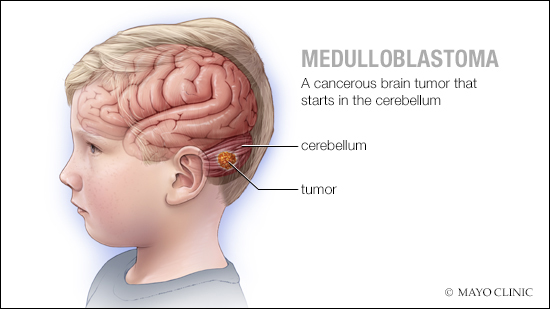-
Cancer
Living With Cancer: Understanding medulloblastoma
 Medulloblastoma
Medulloblastoma
Medulloblastoma is a cancerous brain tumor that starts in the lower back part of the brain, called the "cerebellum." The cerebellum is involved in muscle coordination, balance and movement. Medulloblastoma can occur at any age, but it most often occurs in young children. Though medulloblastoma is rare, it's the most common cancerous brain tumor in children. Signs and symptoms of medulloblastoma may include headache, nausea, vomiting, tiredness, dizziness, double vision, poor coordination and unsteady gait. Learn more about the diagnosis and treatment of medulloblastoma.
Recurrent breast cancer
The initial treatment for breast cancer is aimed at eliminating all cancer cells, but a few may evade treatment and survive. These undetected cancer cells can multiply, becoming recurrent breast cancer. The cancer may come back in the same place as the original cancer, or it may spread to other areas of your body. It may occur months or years after your initial treatment. Your treatment options will depend on several factors, including the extent of the disease, its hormone receptor status, the type of treatment you received for your first breast cancer and your overall health. Your health care provider also considers your goals and preferences for treatment. Learn more about the treatment options for recurrent breast cancer.
'Chemo brain'
One frustrating side effect of cancer and its treatment is having memory problems, commonly called "chemo brain." The term is used by cancer survivors to describe thinking and memory problems that can occur after cancer treatment. Chemo brain also can be called "chemo fog," "chemotherapy-related cognitive impairment" or "cognitive dysfunction." There's no clear definition of chemo brain, so no tests exist to diagnose this condition. Cancer survivors who experience these symptoms often score in normal ranges on memory tests. Learn more about chemo brain and what you can do to alleviate it.







